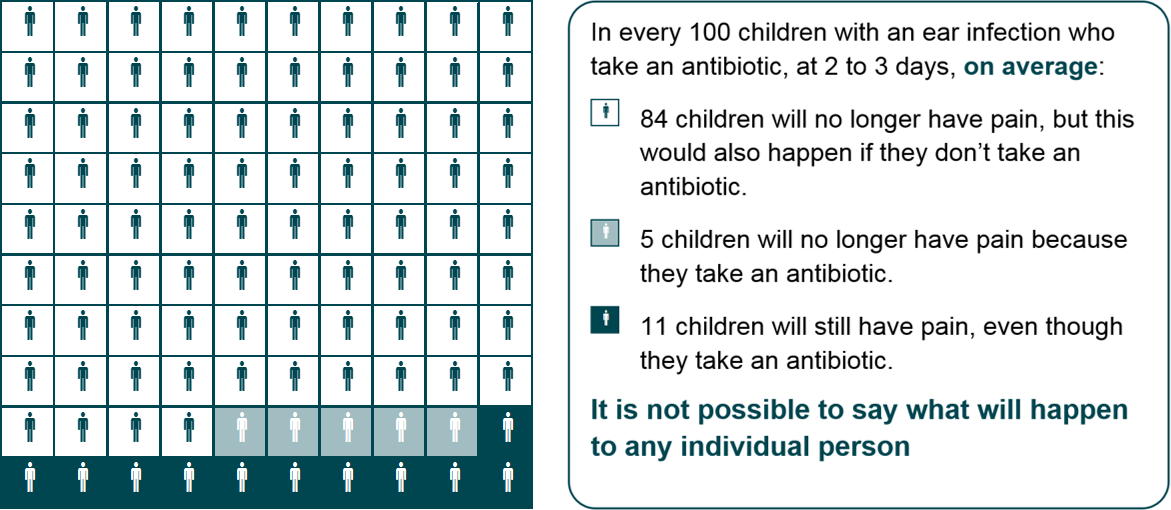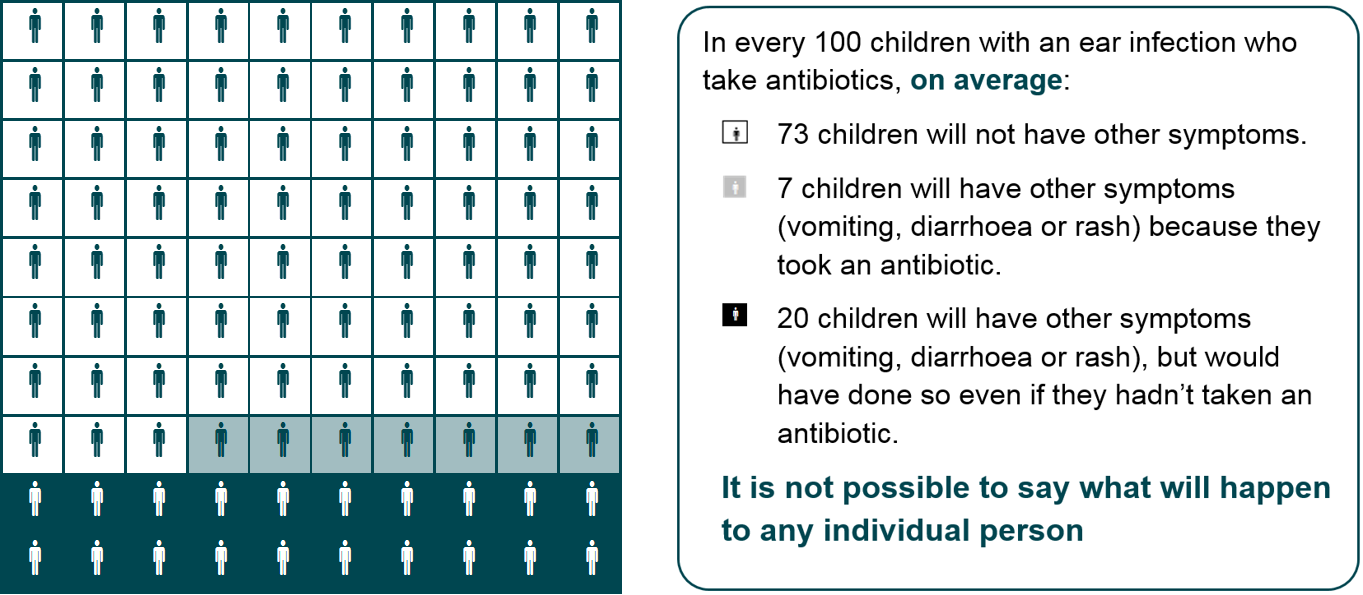Information for the public
Ear infection: does my child need antibiotics?
Ear infections are common in children. They can be caused by a viral or a bacterial infection and symptoms are very similar for both. Most ear infections clear up within 3 days without needing antibiotics, although symptoms can sometimes last up to a week.
Using antibiotics when they are not needed means they may not work as well in the future. This is a serious health risk so NICE has written advice about when to offer antibiotics for some common conditions.
Most children and young people will not be offered antibiotics for an ear infection because:
- An ear infection usually gets better without antibiotics whether it is a bacterial or viral infection.
- Antibiotics make little difference to symptoms, including pain.
- Antibiotics can cause side effects, like diarrhoea.
The diagrams below show information from a study that looked at what happened when children and young people took antibiotics for an ear infection compared with what happened to children and young people who did not.
How likely am I to benefit from antibiotics?

How likely am I to get side effects from antibiotics?

Source: This information comes from a study by Venekamp et al. (2015) that combined the results from 13 separate studies of antibiotics in 3,401 children.
Your doctor should explain other ways you can help your child’s symptoms, such as using paracetamol or ibuprofen regularly to ease their pain. Ask your doctor or pharmacist if you need more advice about giving painkillers to your child. Some people try decongestants or antihistamines, but research shows these do not usually help an ear infection. Your doctor may also prescribe eardrops containing an anaesthetic and an analgesic for pain.
See your doctor again if your child does not improve after 3 days or suddenly seems very unwell.
When might antibiotics be offered?
Your child will be prescribed antibiotics if they need them, such as if they are very unwell or are at risk of complications. They might also be given antibiotics if they have any fluid coming out of their ear or if they are younger than 2 and have infection in both ears.
Sometimes you might be offered a back-up antibiotic prescription, which you can use to get an antibiotic for your child in a few days, if they feel no better, or suddenly feel worse.
Where can I find out more?
Decisions about treatment and care are best when they are made together. Your health professionals should give you clear information, talk with you about your options and listen carefully to your views and concerns.
The NHS website has more information about:
We have also written information on why antibiotics should be used wisely.
We wrote this guideline with health professionals and members of the public. All the recommendations are based on the best research available.
ISBN: 978-1-4731-2902-3
This page was last updated: